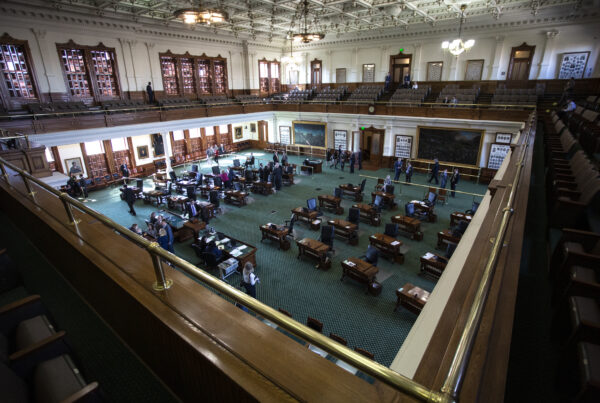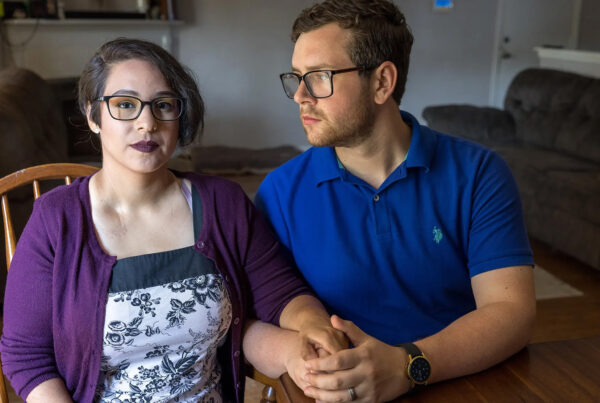A Texas bill aimed at increasing transparency of police records remains in limbo despite earning overwhelming approval in both the House and Senate. Instead of heading to the governor’s desk after passing the Legislature during the regular session, House Bill 30 seems to have gone missing.
This development sparked concerns about the future of the bill, praised as a major victory by advocates of the First Amendment. Austin news outlet KXAN launched an investigation into the complicated legislative timeline that threatens to derail efforts to promote transparency. Josh Hinkle, Director of Investigations and Innovation at KXAN, joined the Standard to discuss.
This transcript has been edited lightly for clarity:
Texas Standard: What exactly would House Bill 30 do? What are its objectives?
Josh Hinkle: The bill would essentially close what has become known as the ‘dead suspect’ loophole. That is an exemption in the Texas Public Information Act that allows police to withhold records in closed criminal cases where the suspect has not gone through the court process. And if a suspect dies in custody, they’re never going to go through the court process. That’s the loophole.
This has been something that Rep. Joe Moody from El Paso has tried to close in the last four sessions. This time it got closer than ever. Obviously, both chambers in the Legislature passed this overwhelmingly. The next step is to get the signature from the Speaker and then from the lieutenant governor. Then, it should be sent to the governor for review, so he can decide if he wants to sign it into law or veto it.
House Bill 30 got the Speaker’s signature. Then somewhere between moving from the House to the Senate, the bill has physically disappeared. So, the lieutenant governor has never signed it, and it has been sitting there for days now.
You say that it has physically disappeared. Don’t we have these things called computers on which they have a virtual life of their own and they’re just as good as the printed paper?
No, you would think that. This rule actually dates back to the Texas Constitution in the 1870s, and it requires this signature. It’s very ceremonial. It isn’t really necessary.
Some people will tell you that with computers these days and the fact that we have video recordings and the journal is all electronic, we don’t really need this ceremonial signature from the Speaker and the lieutenant governor. But that’s what’s spelled out in the Constitution and that’s what has to happen.
So, no one can find the missing House Bill 30. Is there any indication of what might have happened?
I think it really depends on who you ask. There are a lot of people who are wondering if something happened to this bill that might be related to other things that are going on in the Legislature. We have not been able to prove that yet. But what we do know is that the Speaker’s office, the House side of things, says that it did deliver the bill to the Senate.
What I have learned from a Senate journal clerk is that they believe that the bill was never delivered to the Senate. So, that’s the reason the lieutenant governor never signed it. That all being said, the House did send a replacement bill once this was discovered. That was on May 30. The bill has still not been signed since then.
What does this mean for the fate of House Bill 30? Does it have to be signed before the end of the formal session, or is this something that can be repaired?
Right. There are instances, for example, 300 bills last legislative session in 2021 were not sent to or signed by the governor until after the regular session. So, there is precedent for this happening, but it is just weird that HB 30 is the only bill this session that that has happened to.
There’s no constitutional timeline for when the lieutenant governor and the Speaker have to sign this. Of course, once it does get to the governor’s desk, he does have a timeline of when he has to sign something after considering it. But at this point, it’s kind of up in the air.














